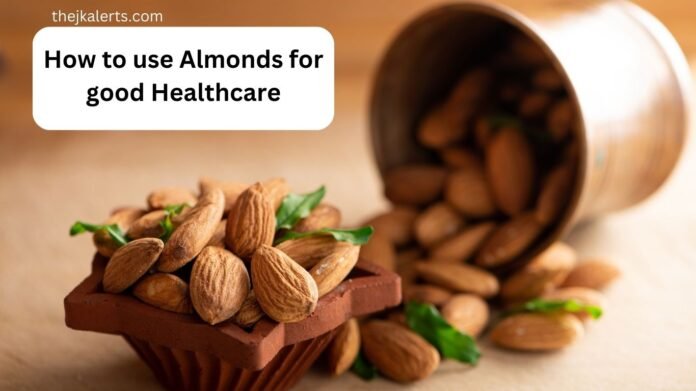How to use Almonds for good Healthcare
Tired of the never-ending health trends that leave you feeling more confused than energized? Instead of seeking for the next “miracle cure,” try a classic snack with a surprising superpower: the simple nut! These little nutritional morsels are high in heart-healthy fats, protein, fiber, and vitamins, making them a secret weapon for anyone looking to be happier and healthier.
So forget the trendy diets and join the almond revolution! We’ll teach you how to harness their potential for greater health, from increasing your brainpower to keeping your heart healthy. Prepare to discover how this delicious nut can help you live a better, more vibrant life. So let’s get started.
Nutritional Profile of Almonds
Almonds boast a nutrient-rich profile, making them a powerhouse for good health. Packed with protein, they aid in muscle repair and growth. Their high fiber content supports digestive health and promotes a feeling of fullness, aiding weight management. Rich in heart-healthy monounsaturated fats, almonds lower LDL cholesterol levels, reducing the risk of heart disease. Additionally, almonds are abundant in vitamin E, an antioxidant that protects cells from damage, contributing to skin health and immune function. With essential minerals like magnesium and calcium, they support bone strength and overall vitality.
Health Benefits of Almonds
- Heart Health: Almonds’ monounsaturated fats lower LDL cholesterol, reducing heart disease risk.
- Weight Management: High fiber content promotes satiety, aiding in weight loss and management.
- Blood Sugar Control: A low glycemic index helps regulate blood sugar levels, beneficial for diabetes.
- Brain Function: Vitamin E boosts cognitive function, potentially reducing age-related cognitive decline.
- Skin Health: Antioxidant properties of vitamin E contribute to healthy skin and immune function.
- Bone Health: Rich in magnesium and calcium, almonds support bone strength and overall vitality.
How to Incorporate Almonds into Your Diet
Incorporating Almonds into Your Diet
Breakfast Boost
Incorporating almonds into your breakfast routine is a delicious way to kick-start your day with a nutritious punch. Sprinkle sliced almonds on top of your morning oatmeal or yogurt for added crunch and protein. You can also blend almonds into your favorite smoothie for an extra creamy texture and a boost of healthy fats.
Cooking and Baking
Almonds are incredibly versatile in cooking and baking. Swap out traditional flour with almond flour or almond meal for a gluten-free alternative that adds a nutty flavor to your recipes. Additionally, adding chopped almonds to salads, stir-fries, or baked goods not only enhances the taste but also boosts the nutritional value of your meals.
Snack Smart
Snacking on almonds is a convenient and satisfying way to curb cravings while nourishing your body. Enjoy them on their own as a portable snack, or get creative by incorporating them into homemade trail mix or energy bars. Whether you prefer them plain, roasted, or flavored, almonds make for a wholesome and delicious snack option throughout the day.
Almonds in Traditional and Alternative Medicine
- Historical Significance: Almonds have been utilized in traditional medicine for centuries due to their perceived health benefits.
- Digestive Aid: In some traditional practices, almonds are believed to aid digestion and alleviate gastrointestinal issues.
- Skin Remedies: Ground almonds have been used in skincare remedies for their exfoliating and moisturizing properties.
- Nutritional Support: Alternative medicine proponents often recommend almonds for their nutrient-rich profile, promoting overall well-being.
- Caveats: While almonds have a long history of use in traditional and alternative medicine, it’s important to approach their consumption with moderation and consider individual health needs.






